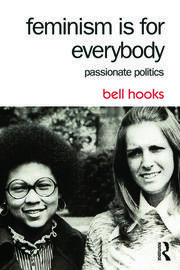Baumrind Parenting Styles by Diana Baumrind
Diana Baumrind, a clinical and developmental psychologist, identified three main parenting styles in the 1960s: authoritarian, permissive, and authoritative. Authoritarian parents are very strict and have high expectations for their children without much room for negotiation. Permissive parents are the opposite; they have low expectations and are very lenient.
Lastly, authoritative parents fall in the middle; they have high standards but also provide support and explanations to their children.
Diana Baumrind is a clinical psychologist who has conducted extensive research on parenting styles. She identified three main parenting styles: authoritarian, permissive, and authoritative.
The authoritarian parenting style is characterized by high levels of control and rigid rules.
Parents with this style tend to be highly demanding and have little tolerance for misbehavior. They typically expect their children to obey without question and may use punishment to enforce compliance.
The permissive parenting style is characterized by low levels of control and few rules.
Parents with this style tend to be very lenient and responsive to their children’s needs. They are often reluctant to discipline their children out of fear of damaging the parent-child relationship.
The authoritative parenting style is characterized by moderate levels of control and clear rules.
Parents with this style set limits for their children but also allow them some autonomy within those limits. They encourage independence and self-regulation while still providing guidance and support when needed.
Baumrind’s research has shown that the authoritative parenting style is associated with the best outcomes in terms of child development, including academic achievement, social competence, psychological adjustment, and fewer behavioral problems.
Therefore, if you are looking for a successful parenting model to follow, Baumrind’s work would suggest that the authoritative approach is the way to go.
Baumrind’S Parenting Styles Examples
Baumrind’s parenting styles are based on two factors: control and warmth. Authoritarian parents are high on control and low on warmth, while permissive parents are low on control and high on warmth. Baumrind’s third parenting style, authoritative, is a balance of the two.
Here are some examples of how these parenting styles might play out in real life:
Authoritarian: Parents who fall into this category tend to be very strict. They have a lot of rules and expectations for their children, and they enforce them with little room for negotiation.
These parents also tend to be less affectionate than other types.
Permissive: Permissive parents are just the opposite of authoritarian ones. They have few rules and expectations for their children, and they’re generally quite lenient when it comes to enforcing them.
These parents also tend to be more affectionate than others.
Authoritative: Authoritative parents strike a balance between the two extremes. They have clear rules and expectations for their children, but they’re also open to negotiation and discussion.
These parents usually have a good relationship with their kids built on mutual respect.

Credit: www.kingdomofbaby.com
How Did Diana Baumrind Study Parenting Styles?
In the 1960s, Diana Baumrind conducted a study on parenting styles and their effect on children’s development. She identified three different parenting styles: authoritarian, permissive, and authoritative.
Authoritarian parents are very strict and controlling.
They have high expectations for their children but do not offer much warmth or support. Permissive parents are the opposite – they are very lenient and have few expectations for their children. Authoritative parents fall in between these two extremes – they have high expectations for their children and also offer warmth and support.
Baumrind found that children of authoritarian parents were less happy and more likely to exhibit problem behaviors than children of other parenting styles. She also found that children of permissive parents were less competent than those of other parenting styles. Finally, she found that children of authoritative parents were the most well-adjusted overall – they had high levels of happiness and competence, and low levels of problem behavior.
Thus, Baumrind’s study showed that parenting style has a significant impact on child development. It is important for parents to find a balance between being too strict or too lenient – only then will their children thrive.
What are Baumrind’S Four Dimensions of Parenting?
Baumrind’s four dimensions of parenting are authority, warmth, communication, and involvement.
Authority refers to the parent’s ability to set limits and enforce rules. Warmth refers to the parent’s emotional support and encouragement of their child.
Communication refers to the parent’s ability to provide clear and consistent instructions to their child. Involvement refers to the parent’s level of involvement in their child’s life.
What are the 4 Types of Parenting Styles And Their Characteristics?
The four types of parenting styles are authoritarian, authoritative, permissive, and uninvolved.
Authoritarian parenting is a style characterized by high levels of control and strictness. Authoritarian parents have high expectations of their children and often require them to follow rules without explanation.
This parenting style can be effective in some cases, but can also lead to children who are resentful and disobedient.
Authoritative parenting is a more balanced approach that combines high expectations with warmth and support. Authoritative parents explain the reasons behind rules and expectations to their children and are responsive to their needs.
This parenting style typically leads to well-behaved, happy children who are able to take direction well.
Permissive parenting is a style characterized by low levels of discipline and structure. Permissive parents allow their children a great deal of freedom and rarely impose rules or consequences.
This type of parenting can lead to children who are undisciplined and have difficulty following rules or instructions from others.
Uninvolved parenting is a style characterized by little interest or involvement in a child’s life. Uninvolved parents provide basic necessities but do not otherwise interact with or nurture their children.
This type of parenting can lead to problems such as behavioral issues, academic difficulties, and social problems.
Baumrind's Parenting Styles (Intro Psych Tutorial #181)
Conclusion
Diana Baumrind is a clinical psychologist who proposed the idea of different parenting styles. She identified three main parenting styles: authoritative, authoritarian, and permissive. Authoritative parents are both demanding and responsive to their children.
They set high expectations but are also willing to help their children meet those expectations. Authoritarian parents are more demanding than responsive. They have high expectations for their children but are not as willing to help them meet those expectations.
Permissive parents are more responsive than demanding. They have low expectations for their children and do not require them to meet many rules or responsibilities. Each parenting style has its own strengths and weaknesses, and each child will respond differently to each style.


